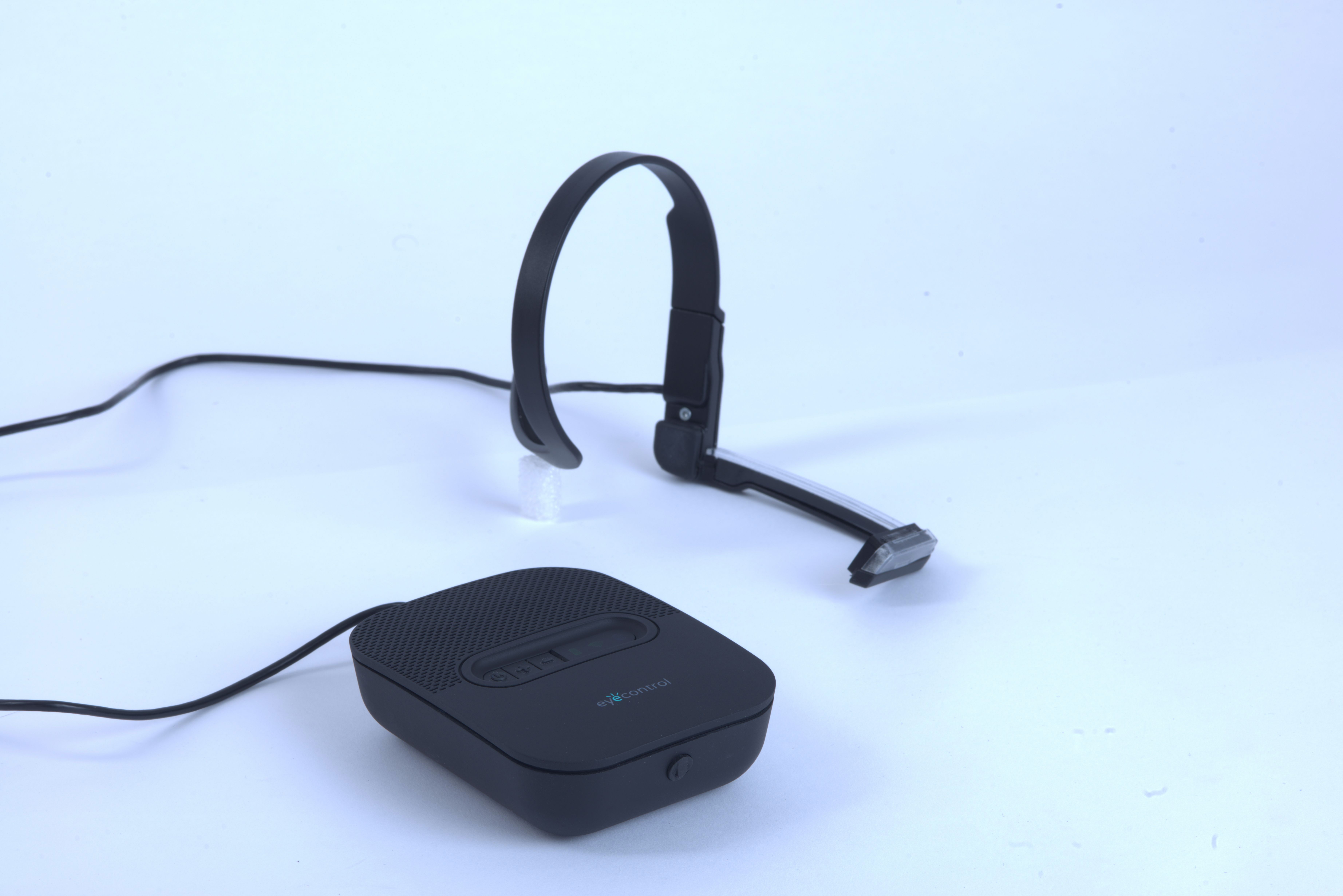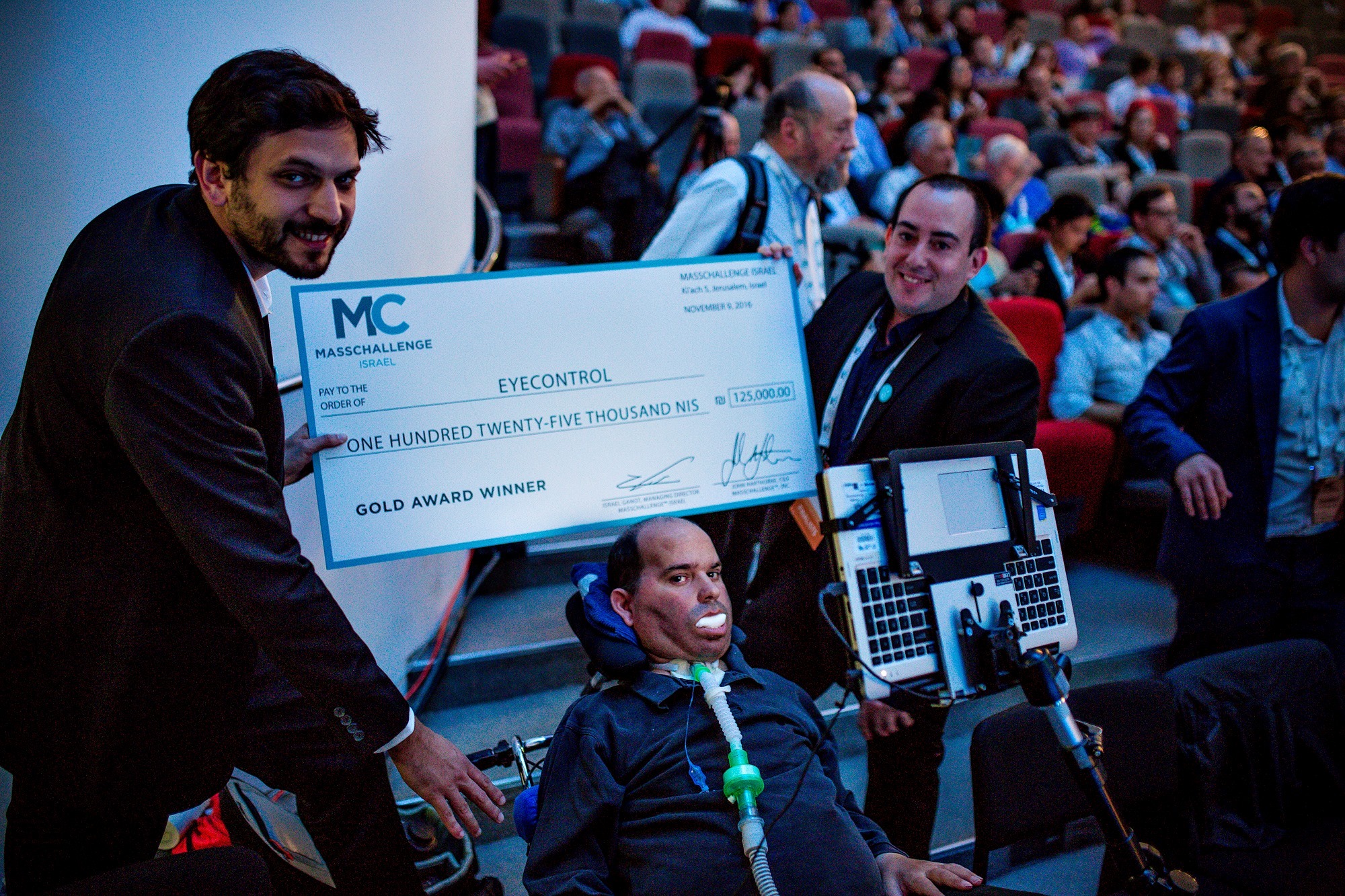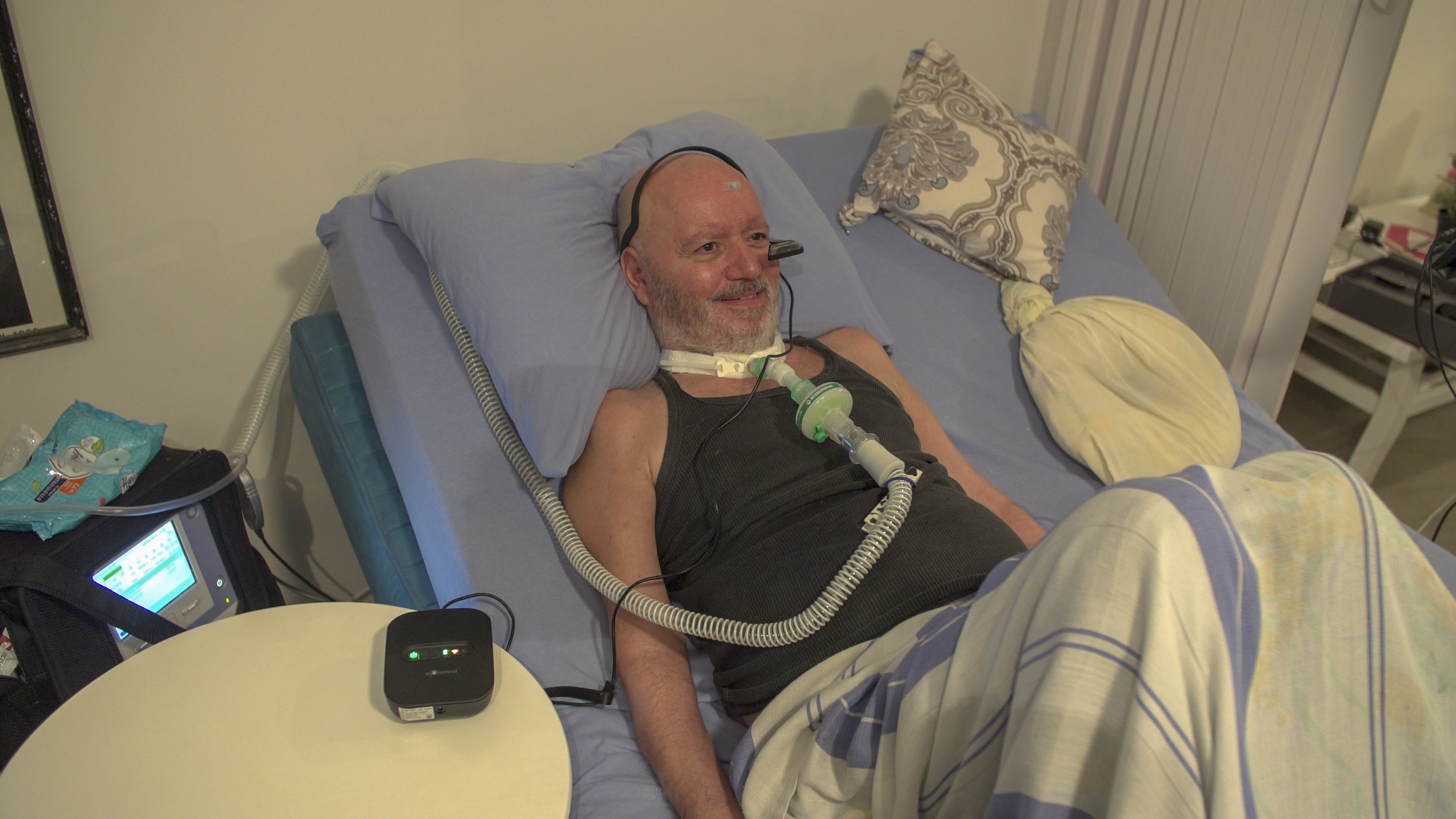
Company of the Month – EyeControl
A wearable that helps to give a voice to those who can only communicate with their eyes has been developed by a team of entrepreneurs at EyeControl, each with a personal connection to locked-in patients.
The Israeli health tech company created the device to allow people who have lost the ability to move or speak, but retain full cognitive ability, to communicate.
Locked-in syndrome is characterised by complete paralysis of voluntary muscles, except for those that control the eyes. It can often be due to neurological syndromes such as Amyotrophic Lateral Sclerosis (ALS), motor neurone diseases (MND), stroke and traumatic brain injury. Approximately one in 50,000 people will develop MND in any one year, with over 5,000 people in the UK affected at any one time.
EyeControl was established in January 2016, but the idea was formed long before that, when the core team came together through a shared passion to help people they loved to communicate. Today, the company aims to be a leading supplier of assistive communication devices for the locked-in community.
Or Retzkin, CEO, EyeControl said: “All of our founders have a connection to locked-in syndrome, either knowing someone or having being diagnosed ourselves. We met without understanding where it would lead, but all agreed that one of the most painful aspects for the patient and their families is the lack of communication”.
Their mission is to improve the quality of life for these patients and to advance the method of communication within medical centres by providing a wearable, screen-free and easy communication device.
The Technology
Using seed money from angel investors, the team developed the wearable personal communication device in 2017, which uses audio feedback and eye gestures to enable immediate communication. A head-mounted infrared camera tracks the eye movements and sends the information to a small processing unit which translates the movements into communication. A bone conduction component that sits within the earpiece provides audio feedback to the user, allowing them to hear the communication before it is transmitted to an output speaker or connected Bluetooth device.
Benefits include:
- No Long Calibration Necessary – Once the headset is placed correctly, the user can begin communicating immediately. There is no need for a screen or external device.
- It can Be Worn 24/7- A lightweight device, it can be operated in a variety of conditions, it doesn’t interfere with other devices and can be easily turned on and off by the user.
- Easy to use – It’s easy to learn and operate. In a user trial at a leading hospital in Israel, average user training lasted 20 minutes.
- Bi-directional – The device does not obstruct the view so you can maintain eye contact while communicating.
- Personalisation – Audio gender and language can be selected and the user can change the gender or language of the audio menu and the external voice. The patient can use predefined sentences or teach the EyeControl personalised syntax.
- User-centric – It gives individuals more privacy as only they can hear the menu options before sending their communication to the output speaker. They have greater independence, control and can maintain more awareness of surrounding while still having the ability to communicate.
Or Retzkin, CEO, EyeControl said: “Shay, our co-founder and ALS patient, was saying that he would like to develop a portable solution for situations where he is not calibrated to the screen of a computer – such as waking up at night, being outside, or in the bathroom. Our device allows people to communicate – either socially or in emergency situations – at any time.”

Expanding into the UK market
As of 2018, the device has been available to NHS patients on the NHS Supply Chain Framework. Deciding to target the UK because it has a similar health system, they were connected through Israel NGOs to the UK health market.
Or said: “We are honoured to be working with the NHS and getting their stamp of approval has opened other doors for us. It removed the challenge of developing marketing and sales in another country and provided a single route into patients. The UK’s knowledge of assistive tech is very broad and they have a mature system of accessibility. Our experience of connecting with health networks in the UK has been very positive and supportive.”
The journey to get there
This is the team’s first company and they each come to it from different backgrounds. With experience in the Navy, finance and teaching, it was through Or’s passion for communication and technology that brought him to the idea with Shay Rishoni (1966 – 2018) and the third co-founder, Itai Kornberg, who lost his friend to Duchenne Muscular Dystrophy.
Having the support of the NHS, the Israeli government and other health systems, has been useful for funding purposes and has helped them to keep evolving the product. They are backed by the EU European Commission and have received funding through Israeli investment firm, Zora Ventures, Israeli impact venture capital fund Impact First Investments, and Chinese specialist fund, Rimonci.
Or said: “It’s been one big learning curve. We have had to learn everything about technology, financials, psychology, managing a team. None of us are the same person that we were when we started. The digital health landscape is constantly changing, and we have had to evolve with that. It’s a must.”
Asked about the pivotal moment in their journey, while competitions such as Mass Challenge, the WeWork Creator Awards and receiving a European Commission grant are highlights, Or says it is about that good news they get from patients or their families that reminds them of the importance of their device.
“Patients are at the core of the business. To see how happy they are and the reaction on their families’ faces is priceless. Equally, to get feedback from NHS patients has been instrumental for us in making the necessary adjustments to make this the best communication device for locked-in patients,” said Or.
He also expressed the importance of listening to people in the industry with more experience. They could save a lot of time if they have encountered a similar problem before or they could make you aware of an opportunity you could have missed.

Next steps
The company is growing the activity in the Home Care environment and inside the facilities. They are building the management team with senior executives from the healthcare industry, developing partnerships with global medical device companies and focusing on growing the team in England.
This year, one of the goals of the company is to expand the local team in England and to develop connections with the local market.

Our Company of the Month feature aims to surface life sciences company success stories in London and the greater south east. If you work for a company you’d like to see featured, or would like to nominate a company, please contact communications@medcityhq.com.